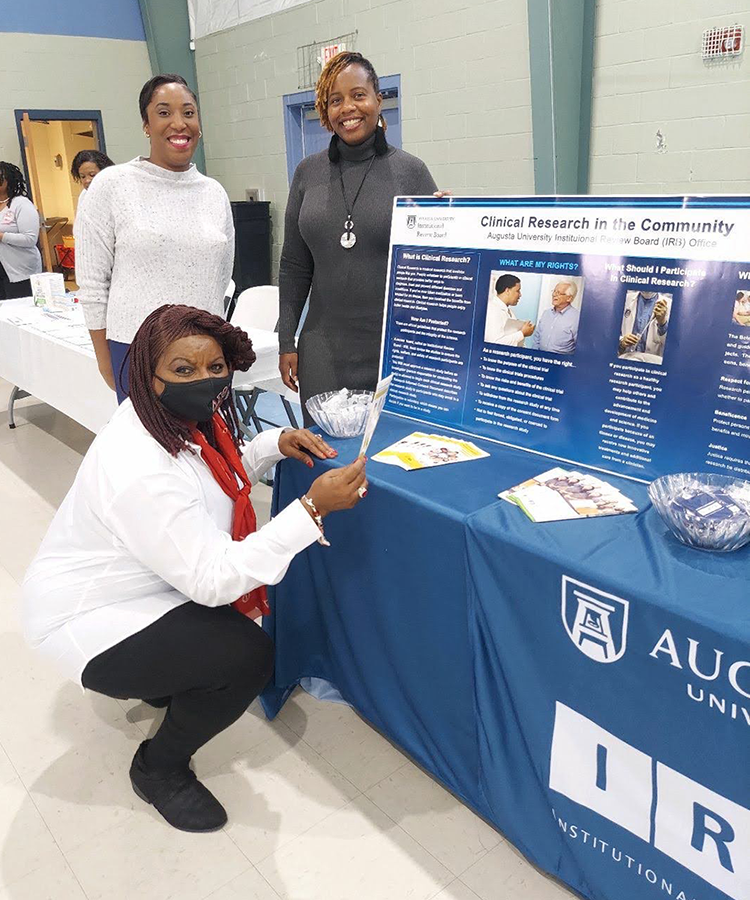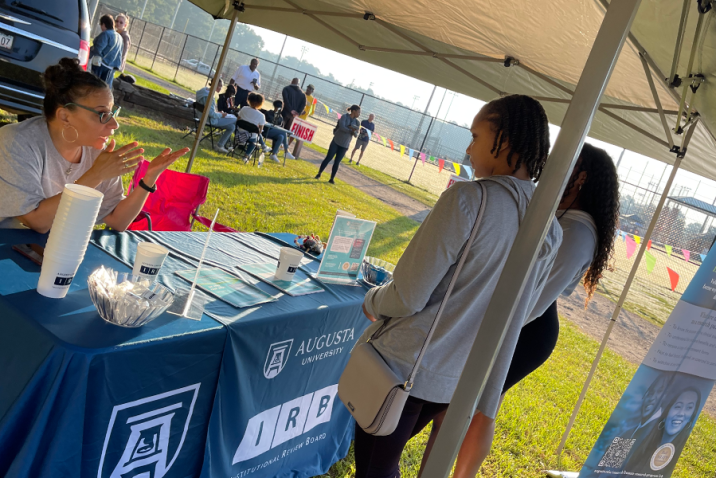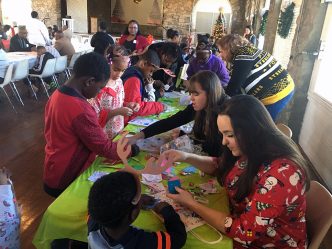Research is a fundamental necessity in numerous fields from the arts and social sciences to health sciences and health care. While it is important for research to be conducted, there still needs to be strict rules around how, when and why research is conducted — along with who is included — particularly in dealing with human subjects.
The Augusta University Institutional Review Board (IRB) is a resource that ensures the research goals of the Augusta University enterprise are met, while protecting human subjects involved in research and verifying the enterprise meets compliance standards.
“We want to make sure that Augusta University and our researchers reach out to the underrepresented and underserved communities,” said Angela Toole, interim director of the IRB Office.
“We aim to be the voice of the individual. This is what we do. This is our profession. We want to not only build relationships with our local communities, but maintain them. We also want to educate and empower people and say if you do participate in a research study, these are your rights.”
Read more: Center for Bioethics and Health Policy hosts community event focused on health equity
To coincide with ensuring the adequate and fair representation of underrepresented groups in research, the IRB Office has formed a community engagement steering community that guides the office’s Diversity, Equality and Inclusion (DEI) and engagement efforts in the community. The steering committee includes members who actively represent the community and know best where to focus the efforts of the office.
Along with the community engagement steering committee, the IRB Office also began community outreach efforts, including community educational forums to reach underrepresented populations. These forums have focused on listening to members of the surrounding communities and taking suggestions on how to improve participant outreach and representation. Outreach efforts also include research symposiums focused on health literacy and representation at community health fairs.


“Studies show that certain populations are disproportionately enrolled in research that could potentially benefit them. For example, studies have shown that COVID-19 affected African Americans more. When they got it, they were hospitalized more and they were dying more when compared to other groups. However, when you look at the research that was being done on COVID-19, African American representation of participants was very low,” said Tiffany Coleman, IRB reliance coordinator.
Once the IRB Office noted the lack of inclusion of certain populations, the office began planning and holding public forums around Richmond and Burke counties. While those on the forums did share some information that was expected as far as a basic mistrust for medical research and medicine, some answers were not as expected.
“Those in attendance talked heavily about the COVID-19 vaccine and why African Americans didn’t trust it, but it wasn’t necessarily all because of mistrust. They said they didn’t have access and didn’t even know about the research,” Coleman said.
Read more: Rural Georgia counties pinpointed as hotspots for death from four common cancers
As many of the participants noted, they rarely travel to Augusta University Health or other larger hospitals for medical care, so they aren’t made aware of research which is a major barrier with inclusion.
“We looked at the barriers with our community engagement steering committee and it helped us by starting to look internally at what we did,” Coleman said.
“We started by looking at the wording of our consent forms because one thing that those who attended our forums talked about was that people don’t understand what is in the consent forms. We started to look at our internal policies for any barriers. We hope to increase the forums to continue gaining insight from the local community.”
And those initiatives have not solely been aimed at helping Black Americans, but all underrepresented communities, including Hispanic Americans, those of lower socioeconomic status, people with disabilities, people of various sexual orientations and genders, etc.
Upcoming events
Coming up in November, the IRB Office will host or attend events for the local communities surrounding AU:
- Nov. 12 from 11 a.m. – 2 p.m., “Rhythm and Ribs” health fair at Christ Community Health Olde Town (127 Telfair St., Augusta, GA)
- Nov. 14, Breakfast with Augusta University DEI sponsored by the Center for Bioethics and Health Policy (CBHP)
- Nov. 14, from 12-1:30 p.m., CBHP will host Nneka O. Sederstrom, PhD as part of the Alan and Janet Roberts Memorial Fund Lecture in Bioethics series. Sederstrom will present “A Brief History of Racism in Medicine, Clinical Ethics, and the Impact on Patient Care.”
- Nov. 15, from 9:30-11:30 a.m., The CBHP and Lucy Craft Laney Museum of Black History and Conference Center (1116 Philips St., Augusta, GA) will host a roundtable event for the community titled “Building Trust in Health Services: What’s Needed?” The roundtable will take place at the museum and conference center. For more information, call the Lucy C. Laney Museum of Black History at 706-724-3576.
 Augusta University
Augusta University




